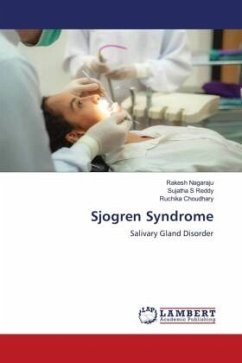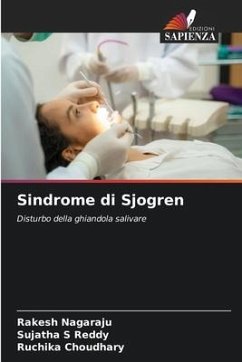
Sjogren Syndrome
Salivary Gland Disorder
Versandkostenfrei!
Versandfertig in 6-10 Tagen
29,99 €
inkl. MwSt.

PAYBACK Punkte
15 °P sammeln!
Sjogren's syndrome is an autoimmune disease characterized by inflammation of exocrine glands, which can be summarized by the term 'autoimmune exocrinopathy' or 'autoimmune epithelitis'. The principal target is the tubular epithelium of salivary and lachrymal glands, leading to the characteristic symptoms of dry eyes and mouth. The exocrinopathy is frequently more extensive, involving the secretory glands of the skin, the respiratory tract and urogenital tract, resulting in more widespread clinical manifestations. About one-third of patients also have extraglandular manifestations mediated by i...
Sjogren's syndrome is an autoimmune disease characterized by inflammation of exocrine glands, which can be summarized by the term 'autoimmune exocrinopathy' or 'autoimmune epithelitis'. The principal target is the tubular epithelium of salivary and lachrymal glands, leading to the characteristic symptoms of dry eyes and mouth. The exocrinopathy is frequently more extensive, involving the secretory glands of the skin, the respiratory tract and urogenital tract, resulting in more widespread clinical manifestations. About one-third of patients also have extraglandular manifestations mediated by immune complexes and vasculitis, giving rise to clinical features familiar to rheumatologists.












